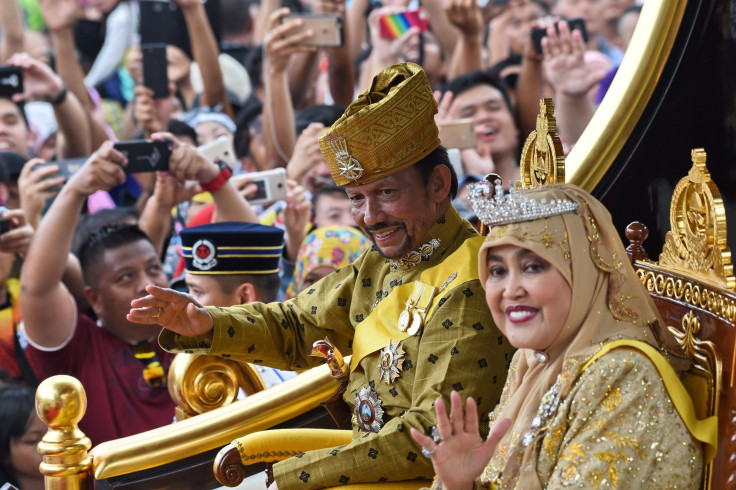Brunei Lifts Gay Sex Death Penalty: Countries With Capital Punishment For Homosexuality

Brunei on Sunday reversed its decision to impose the death penalty on those convicted of having gay sex.
In April, the Southeast Asian country sparked an outcry after it introduced strict new Islamic laws that included punishments like death by stoning for anyone who engaged in gay sex. This move caused global backlash with celebrities including George Clooney and Elton John seeking to boycott the hotels owned by Brunei's sultan in various parts of the world.
“In fully implementing the Syariah Penal Code Order (SPCO) 2013 from 3rd April 2019, both systems will continue to run in parallel to maintain peace and order and preserve religion, life, family and individuals regardless of gender, nationality, race and faith. The Syariah Law, apart from criminalizing and deterring acts that are against the teachings of Islam, it also aims to educate, respect and protect the legitimate rights of all individuals, society or nationality of any faiths and race,” Brunei’s Prime Minister’s Office said in a statement at the time.
However, in a televised speech Sunday, Sultan Hassanal Bolkiah, the country's ruler, said there had been many “questions and misperceptions” about the law and that “once these have been cleared, the merit of the law will be evident.”
"For more than two decades, we have practiced a de facto moratorium on the execution of death penalty for cases under the common law. This will also be applied to cases under the Syariah Penal Code Order (SPCO)," the sultan added.
Though the announcement came as a relief to the LGBT community, activists believe the laws that remain in place needed to go.
Matthew Woolfe, founder of human rights group The Brunei Project said though the death penalty will not be imposed, the LGBT citizens of the country could still face other punishments like jail or whipping.
"There is nothing stopping the Brunei Government from lifting the moratorium at any time,” he said, CNN reported.
Homosexuality is, however, subjected to the death penalty in many countries.
- Iran – Gay sex can be punished by death in the country in accordance with sharia law. Woman, on the other hand, may be beaten up. The country had already imposed the death penalty for same-sex acts. In January, an unidentified man was publicly hanged after he was found guilty of violating anti-gay law.
- Yemen – Married men in the Middle-East country may be punished by death for homosexual intercourse while unmarried men could face a year in prison. The woman could be jailed for seven years.
- Saudi Arabia – The country sentences people convicted of homosexuality to a range of punishments including the death penalty. In 2011, a man was sentenced to five years imprisonment and 500 lashes for indulging in homosexual acts.
- Nigeria – Though homosexual relations is punishable by imprisonment according to the country’s federal saw, some states that practice sharia law impose death penalty for gay sex. In July 2017, over 40 men were arrested for performing homosexual acts.
- Mauritanian – The law in the African country allows for death by stoning for those convicted of having gay sex but the nation has a de facto moratorium on capital punishment.
Other countries where homosexuality may be punished by death include Sudan, Somalia, Qatar, Afghanistan and the United Arab Emirates.
© Copyright IBTimes 2025. All rights reserved.





















